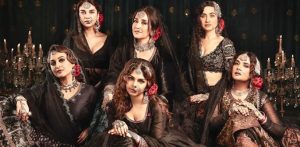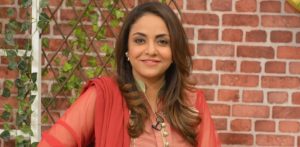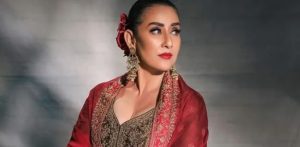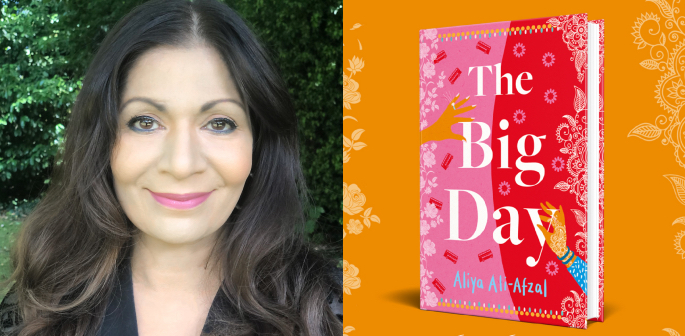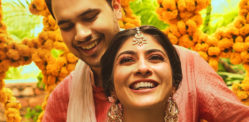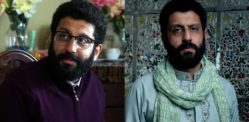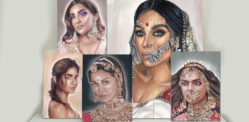Noor’s family keep a lot of secrets.
In an enlightening conversation, Aliya Ali-Afzal opens up about her journey from an Executive MBA Career Coach to a full-time writer.
With her latest novel, ‘The Big Day’, Ali-Afzal not only explores the vibrant chaos of Muslim weddings but also delves deep into the British-Asian experience.
Through her candid discussion, we get a glimpse into the inspirations behind her writing and the importance of representation in literature.
Ali-Afzal’s narrative is a testament to the power of storytelling in bridging cultural gaps and sparking conversations about identity and generational differences.
Her approach to writing makes ‘The Big Day’ a compelling read that transcends cultural boundaries, inviting readers from all walks of life to find pieces of their own stories within its pages.
What inspired your transition from an Executive MBA Career Coach to a full-time writer, and how has your previous career shaped your writing process?
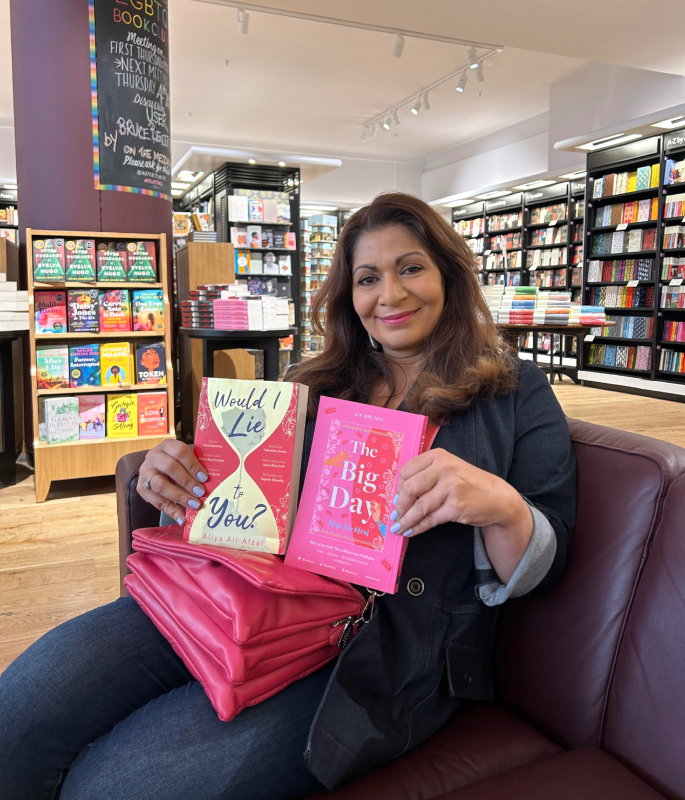
However, there were no writers in my family and nor did I know any writers, so after university, I dismissed this as an unrealistic fantasy and got a ‘sensible’ corporate job.
Having discarded my own dream, ironically, I spent 20 years as a Career Coach, helping my clients to leave their current careers and pursue their passions.
I loved seeing how happy they were when they took this step, but it still never occurred to me to revisit my own suppressed dream.
Then, one day, I bumped into an old university friend who had written a novel.
In a split second, I felt all my childhood desires to write come rushing back and I finally acknowledged that this was something I still wanted.
It helped to see someone like me, who I knew personally, was a writer.
I won a place on a writing course, and it felt like coming home.
Through my coaching, I knew that pursuing big dreams requires perseverance, self-discipline and clear targets.
I used my coaching strategies on myself to stay focused and resilient, when writing was hard and I was getting rejections, with zero guarantee of success.
What inspired you to write about Muslim weddings and British-Asian experiences in ‘The Big Day’?
The initial inspiration was when I saw how wedding planning consumed the lives of family, friends, and work colleagues for months on end, as they grappled with logistics, the dream ‘big day’, the cost, trying to please everyone involved, arguing over guest lists and escalating family politics.
The potential for drama, relationship clashes and exposing long-suppressed cracks within family dynamics was high.
I was particularly drawn to the idea of how planning a wedding might tear a mother-daughter bond apart, especially with a ‘mumzilla’, even if they were seemingly close.
Although these themes are universal to all cultures, everything is somehow more intense within British-Asian weddings, where there is the added conflict of parents holding onto all the South Asian traditions and millennials and Gen Z, wanting something a little different that reflects their own experience.
I am passionate about representation, and it was important for me to write about modern-day British-Asian weddings and families, and how they are evolving, instead of just showing the stereotypical aspects sometimes seen in fiction, that are no longer accurate.
Through this conflict, I also explored the intergenerational and cultural dynamics between the three generations of Nani, Leena and Noor.
What do you hope readers learn from Noor and Leena’s differing views on marriage and generational differences in families?
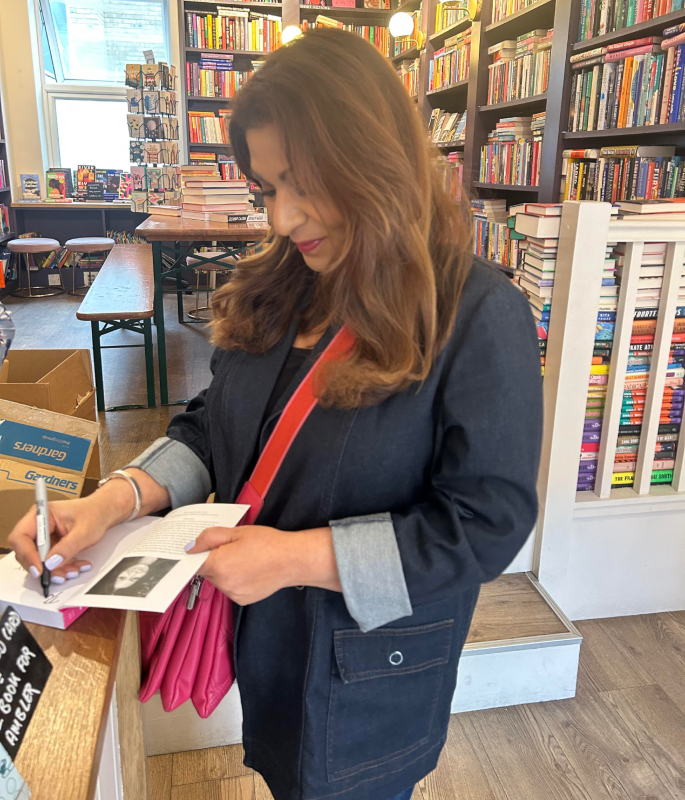
By throwing a grand, traditional wedding, Leena wants to show that despite her divorce, she can still do things the ‘proper’ way.
Noor feels no such societal pressure but, as the only child of a single mother, she does feel a responsibility to prioritise her mum’s happiness, and is caught between having the wedding she wants, or making her mum happy.
The way they deal with this generational disconnect is not very constructive; they avoid discussions or speaking openly, and they can’t see things from each other’s perspectives.
Leena’s relationship with her own mother, Nani, who is 80, has followed a similar path, of deep love but an inability to openly talk about disagreements.
This generational pattern is repeated and so is the conflict.
I hope the book shows the importance of clearer communication and discussion within families, however awkward it may feel.
I would suggest all mums and daughters read ‘The Big Day’ before they start planning theirs!
How do you balance humour with serious themes in your books, especially regarding complex family dynamics?
I never set out to write funny books and as you say, both books deal with serious themes with high emotional and relationship stakes.
However, as in real life, the humour crept in as an inevitable part of family life.
In ‘The Big Day’, the humour is used by Noor as a coping strategy, a way to deflect and avoid answering questions, or to dial down the potential for an argument, especially in her interactions with her mum.
As a narrative device, I wanted the humour to show the warmth and closeness between the mother and daughter, and for me, it highlighted how much they stand to lose, if they cannot resolve their issues.
The funnier moments also help to ease the tension in the story, as they do in life and I hope they also show Noor and Leena, as strong, relatable women, who can laugh at life, even when going through difficulties.
I love that my books are described as ‘funny’, and now that authors like Sophie Kinsella and Jesse Sutanto have described me as funny, some of my imposter syndrome around this is beginning to subside!
How did you research Muslim weddings for an authentic portrayal in ‘The Big Day’?
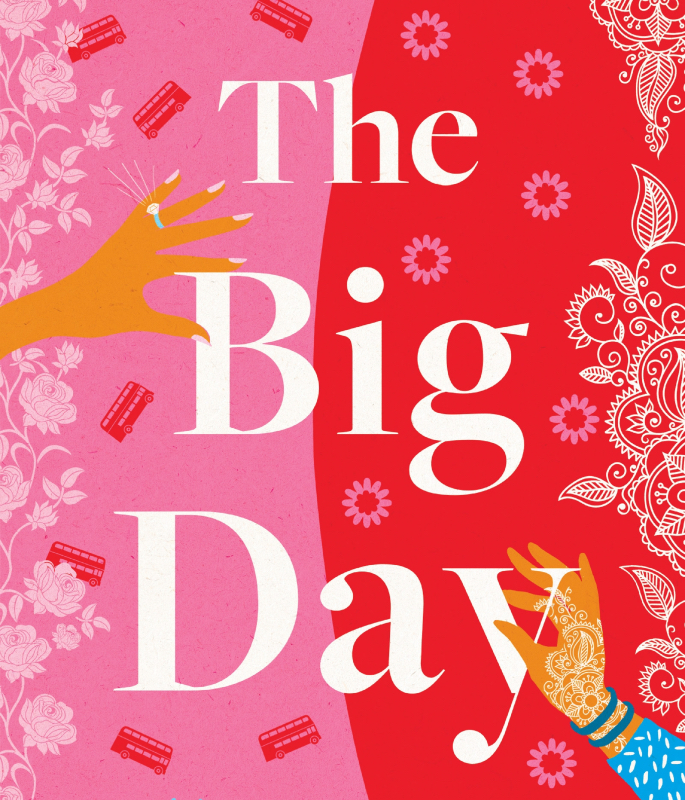
I also knew the exact process of the religious part of the ceremony, which remains unchanged.
However, I wanted to explore how other aspects of British-Asian weddings are changing and researched this by speaking to brides-to-be, doing online research, and speaking to family members who were planning weddings.
It was of the utmost importance to me, to show how weddings are changing for the younger generation and give an authentic portrayal.
Too often still, we can’t have a book or a show about a British Asian wedding unless it focuses on the ‘big fat’ wedding, excessive spending, and celebrations.
Noor wants an intimate, low-cost, sustainable wedding, mixing elements of both her Desi and Western cultures.
Most British Asian weddings these days, mix traditions, so there may be a ‘white’ wedding event with a Western dress, as well as a ‘red’ one with all the Desi traditions.
It’s common for fathers to walk a bride down the aisle, have bridesmaids and throw the bouquet.
As well as that, couples want to have ownership of several aspects that were traditionally the domain of the parents.
Things are changing and I wanted to show that.
How have authors like Clare Mackintosh and Sophie Kinsella influenced your writing, and what does their support mean to you?
As an unknown debut and one of the few British-Asian authors writing commercial fiction for women, the support and praise from these writers meant everything.
Firstly, as a huge fan of these multi-million-selling authors, it was a great confidence boost to know that they liked ‘my’ writing too.
These endorsements were also game-changing and opened me up to a much wider audience of their readers as well.
Sophie Kinsella also recommended ‘Would I Lie To You?’ in a podcast interview with a magazine, Claire Mackintosh selected it as a book club pick for her famous readers’ Book Club, and another favourite writer Adele Parks, recommended it in Platinum Magazine and chose it as ‘hot summer read’ in several national newspapers.
Sometimes, books by British-Asian writers can be seen as ‘niche’ but these endorsements positioned my book for readers of ‘mainstream’ commercial fiction who may not have immediately picked it up.
These authors are some of my all-time favourites and I have read all their books in real time.
I especially love their page-turning plots and memorable characters, which also inspired my writing and I hope my readers experience the same feelings, reading my books.
How did you approach writing about Noor’s apprehensions towards marriage in ‘The Big Day,’ and what message do you hope to convey about love and commitment?
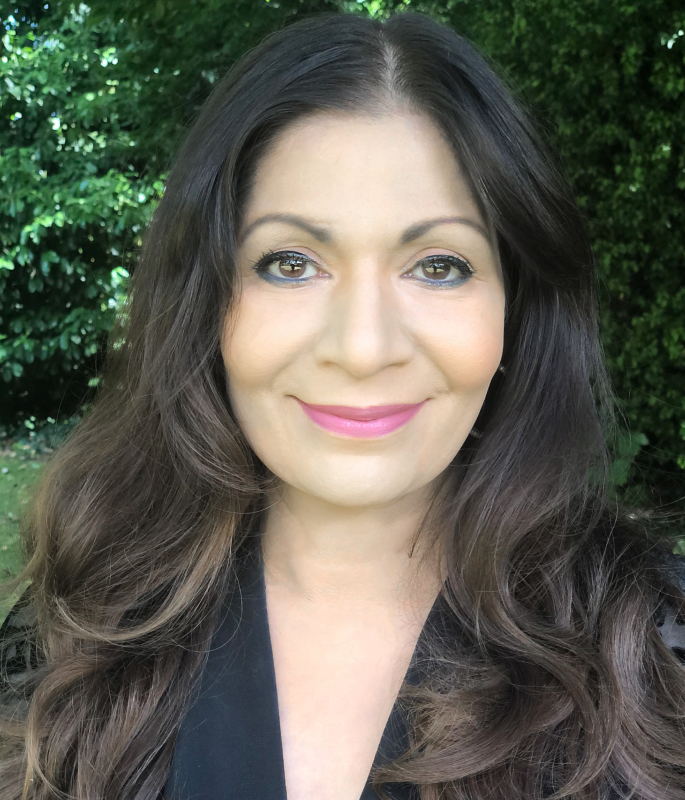
Noor’s mum has had two unhappy marriages and is twice divorced.
Noor knows that her parents were in love, but she has no idea what went wrong.
Her mum’s refusal to speak about her marriage, intensifies Noor’s apprehension about her own future, even though she loves Dan.
Not having grown up with a father, Noor also wonders if she knows how to ‘relationship well’ when she has never seen a happy marriage.
I spent a lot of time reading personal stories and researching the impact of parental divorce or turbulent marriages on the future romantic lives of young women, in particular.
I also explored the general apprehensions anyone may experience as they prepare to get married.
I hope the message in the book is that these are complex and multi-layered experiences, and although we are all affected by our past, the way we process it and approach our future relationships means that we are not purely at the mercy of past generational experiences.
Ultimately, I think exploring and understanding these themes, helps to empower us in our own relationships.
How do you use family secrets as a narrative device in ‘The Big Day’ to explore character growth and relationships?
Noor’s family keep a lot of secrets and many things have not been shared with Noor, either by her mum, or other older relatives, like Nani.
This lack of communication is the way they avoid addressing any difficult and sensitive aspects of their family history, such as the relationship between Noor’s mother and grandmother.
I used secrets to heighten the mystery and a sense of suspense for the reader, which also mirrors Noor’s sense of frustration at no one talking about what had happened in the past.
I also wanted to show how secrets are often used as a way of controlling the family narrative to ‘keep the status quo’ and pretend everything is fine.
It’s a form of gaslighting in some ways. Despite that, in ‘The Big Day’, secrets are the catalyst for Noor questioning everything and wondering who she can trust in her closest relationships.
In the end, I wanted to show that even the most loving of family bonds can be destroyed through secrets, even if the intention to hide traumatic events, had been to protect loved ones.
How has your writing approach evolved since starting your journey, and what advice do you have for aspiring writers?
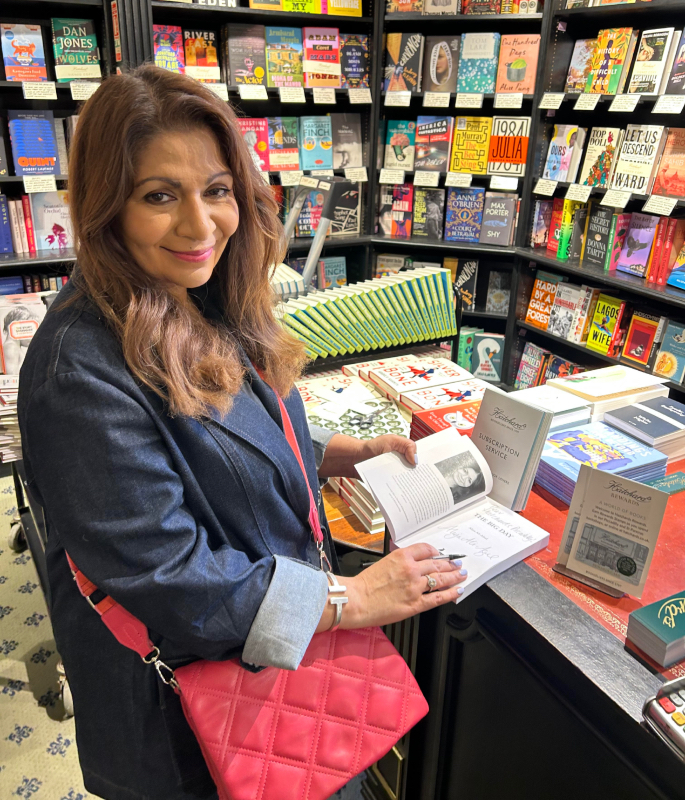
It felt as if I was being self-indulgent and selfish by spending time and energy on a project when I had no idea if I would even get published, and I stopped writing for 3 years.
I had to do a lot of soul searching and some CBT therapy to finally permit myself to pursue my dream, whatever the outcome.
I knew that writing meant a lot to me, and I had to accept that it was OK to do something for myself in my life too, as well as for the people I love.
From that moment, I approached my writing as a serious project and a professional dream.
I cleared out space in my week to write, entered writing competitions and started to have some success.
I also embarked on an MA, which gave me space to grow as a writer.
Now, I do not feel any guilt for pursuing my life’s dream and my advice to aspiring writers is to just write and commit to it, simply because it is something you want to do.
Don’t worry about whether you will get published or not while you are writing- just write if you love it and the next steps will become clearer as you go further down that path.
What themes or stories are you planning to explore in your future work after ‘The Big Day’?
I love writing about how people cope when something happens in their lives that is beyond their control.
I also love writing complex and strong female characters, so these are some of the elements in my next book, but unfortunately, I can’t share more yet!
I write about British-Asian characters grappling with life and relationships, and themes that anyone could relate to.
Although I do discuss generational and cultural expectations in ‘The Big Day’, when people hear about the book, they also start telling me their own or their family’s wedding planning dramas and their relationships with their mums.
Readers of all backgrounds said they could relate to the financial arguments between Faiza and Tom in ‘Would I Lie To You’.
In these two books, the ethnicity and culture of the British-Asian characters inform their stories, but it is not the main focus.
These characters are also dealing with relationships and work problems, like everyone else, and this is what I will also explore in my next book.
Culture and the difference in outlook for first, second and third generation British-Asians is an important part of ‘The Big Day’, but ultimately, it is a book about the universal theme of a mother-daughter relationship.
‘The Big Day’ is an exploration of the ties that bind us, the secrets that threaten to unravel those bonds and the laughter that helps us navigate the toughest of times.
Ali-Afzal’s journey from coaching others to follow their dreams to pursue her own is a reminder of the importance of representation in storytelling and the impact it can have on both the writer and the reader.
With an eye towards the future, Ali-Afzal hints at continuing to explore themes of control, resilience, and the strength of female characters in her upcoming work.
As readers, we can only wait with bated breath to see where Ali-Afzal’s writing will take us next.
‘The Big Day’ launches on June 6, 2024, but you can secure your copy early by pre-ordering now!











